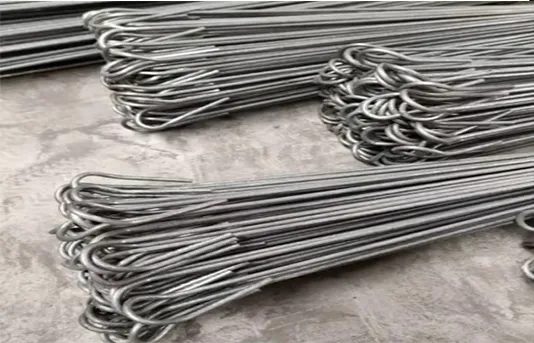-
 Phone:
Phone: -
 Email:
Email:

Does rebar tie wire experience rusting in different environmental conditions and what are the effects?
Does Rebar Tie Wire Rust?
Rebar tie wire is an essential component in construction, especially in reinforcing concrete structures. It is used to tie rebar (reinforcing bar) together to ensure stability and strength in concrete applications. A common question that arises among builders and construction professionals is whether rebar tie wire rusts. This article explores the factors that contribute to rusting, the types of tie wires available, and the precautions one can take to mitigate the effects of corrosion.
Understanding Rusting
Rust is the result of a chemical reaction between iron, oxygen, and moisture, leading to the formation of iron oxide. This process is accelerated in environments that are rich in humidity or exposure to water. Since rebar and tie wire are typically made from steel, they are susceptible to rusting when not adequately protected.
Types of Rebar Tie Wire
Rebar tie wire comes in various types, each with different properties regarding rust resistance. The most common types include
1. Plain Galvanized Wire This wire is coated with a layer of zinc, which forms a barrier against moisture and oxygen. While galvanized wire is much more resistant to rust, it is not impervious. Over time, especially in harsh environments, the zinc coating can wear off, exposing the underlying steel to corrosion.
2. Black Annealed Wire This type of wire has not been galvanized, making it more prone to rusting. It is often preferred for its malleability and ease of binding, but contractors need to be cautious to ensure that moisture doesn’t accumulate around it.
3. Stainless Steel Wire This is the most corrosion-resistant option available. Stainless steel tie wire contains chromium, which forms a protective layer that prevents rusting. However, it is significantly more expensive than other types of wire and may not be necessary for all applications.
Factors Influencing Rusting
The likelihood of rebar tie wire rusting depends on several factors
does rebar tie wire rust

- Environmental Conditions High humidity, exposure to rain, and chemical contaminants such as salts can accelerate rusting
. Areas near coastlines or industrial locations may experience higher rates of corrosion.- Duration of Exposure The longer the wire is exposed to moisture and oxygen, the greater the likelihood of rust formation. Construction projects that take a long time to complete may want to consider using more rust-resistant materials.
- Application Method How the wire is applied in the construction process can also influence its susceptibility to rust. For example, tying methods that compress the wire can potentially damage protective coatings, leading to accelerated rusting.
Mitigating Rust Risk
To mitigate the risk of rust on rebar tie wire, several steps can be taken
- Select the Right Wire Choosing galvanized or stainless steel wire based on the specific environmental conditions of the construction site can significantly reduce rusting.
- Proper Storage Store tie wire in a dry place to keep it away from moisture before application. This simple measure can help prevent rust formation during storage.
- Timely Construction Completing construction projects in a timely manner can reduce the amount of time that wire is exposed to the elements.
- Regular Inspections Conducting regular inspections of the reinforced structure can help identify any signs of rust early, allowing for timely maintenance or replacement.
Conclusion
In conclusion, while rebar tie wire can rust, the extent to which it does depends on various factors, including the type of wire used and the environmental conditions to which it is exposed. By understanding these factors and taking appropriate precautions, construction professionals can enhance the longevity and durability of their projects. Making informed choices about materials and practices is essential for maintaining the strength of reinforced concrete structures.
-
Reinforce Your Projects with Versatile Hexagonal Wire MeshNewsSep.12,2024
-
PVC WireNewsSep.12,2024
-
Maximize Your Closet Space with Clothes Hanger WireNewsSep.12,2024
-
Enhance Safety and Stability with Premium Rock Netting SolutionsNewsSep.12,2024
-
Bucket Handle WireNewsSep.12,2024
-
Baling Wire: Your Ultimate Solution for Securing and BundlingNewsSep.12,2024
-
What’s the Cost of Securing Your Property? Breaking Down Barbed Wire Fence PricesNewsAug.30,2024








